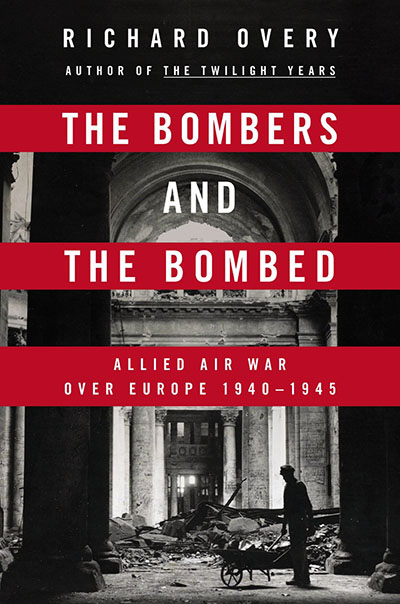
The Bombers and the Bombed
Allied Air War Over Europe, 1940–1945
By Richard Overy. 592 pp.Viking, 2014. $36.
Reviewed by Conrad Crane
BRITISH HISTORIAN RICHARD OVERY, now a professor at the University of Exeter, has been writing about the contest in the skies during World War II for more than 30 years. His initial work, The Air War, published in 1980, was advertised as the first general history of aerial conflict from 1939 to 1945 to appear in English. In this current book, Overy aims to create the first narrative history covering the full aerial assault launched by all Allied powers against targets across the continent of Europe, including occupied countries and Axis satellites. That is a very ambitious undertaking, and it is not surprising that the book should be seen as the starting point, not the final word, for such an exploration.
In his masterful 1995 work, Why the Allies Won, Overy highlighted the many critical contributions of the air offensive and how it was indeed a decisive element in final victory. In The Bombers and the Bombed, he focuses much more on the inefficiencies and disappointments of strategic bombing. He contends that the most important impacts of the Allied air campaign were military ones that he credits primarily to the Americans—the destruction of the Luftwaffe and the dislocation of German transportation. But strategic bombing was never going to destroy a modern industrial economy, and even so-called precision bombing was inaccurate and fairly indiscriminate. Overy is especially critical of British night attacks on German cities, which he believes did not drive the German people away from the totalitarian regime but instead increased their dependence on it. He describes in great detail the hardships suffered by Germans under aerial assault and how the Nazi authorities deftly managed to increase social discipline and prevent state collapse. Many civilians in occupied and satellite countries also died from British and American bombs, and that sometimes led to a political backlash inimical to Allied interests. The newest revelations in the book deal with the bombing of Italy. Allied leaders blamed Mussolini for bringing such destruction upon his nation—a destruction predicted earlier in the century by the Italian prophet of unrestricted air attack, Giulio Douhet.
Overy would have profited from a deeper plumbing of the book’s extensive bibliography, but it does provide an excellent source for readers who want to pursue further the many facets of the complex air offensive that he describes. And ultimately, the book offers much for both novices and experts to ponder.
Conrad Crane is director of the U.S. Army Heritage and Education Center at Carlisle Barracks, Pennsylvania, and a former professor of history at West Point.

.jpg)



